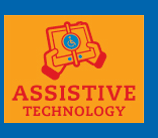Our son Ben was heartstoppingly beautiful when he was little – but very, very hard work. He climbed everything and ran around like a firecracker all day, usually with a little plastic hippopotamus in each hand. At nursery school when I came to collect him, the other children would be sitting round for circle time. He would be clambering on the climbing frame, a plastic hippo tucked away in one sticky paw. At children’s parties he ignored the communal games and made a beeline for the Noah’s Ark to dig out – yes you’ve guessed – the hippos.
We just thought he was lively – and perhaps a little obsessed with hippos. But the health visitor furrowed her brow. She was, she said, a bit concerned with his poor eye contact and the way he kept arranging his hippos in circles. She knew that it was a bad sign if a child endlessly arranged their toys in lines. She wasn’t so sure about circles and would consult her books.
Later, she phoned back: circles were apparently equally bad news. She arranged a hearing test, and then a session with a speech therapist who made him look at flip charts and point at pictures. The therapist was a big lady – and when she flicked the flipchart, the flesh on her upper arms swung back and forth. Ben was captivated by these flaps of flesh and kept reaching out to touch them. He didn’t score well.
Afterwards I asked the therapist what she thought. She said, “Oh he’s definitely somewhere on the spectrum.”
The spectrum?
“Oh, the autistic spectrum,” she said jovially.
That was the first diagnosis. By the time Ben went to school, the paediatricians had labelled him with Asperger’s syndrome. In the morning, he had behavioural therapy at home – arranged by me because, having read up on Asperger’s, I realised we had to pull the stops out if he was ever to have anything remotely resembling a normal life. After school, the poor little blighter had more therapy. And the poor little hippos were locked away in a suitcase and only brought out for half an hour a day.
Gradually, Ben’s eye contact improved and the hippo obsession faded. But school was a battle and it was clear – we didn’t need a diagnosis for this – that he was also very dyslexic. We struggled on with the behavioural training, but life was hard for Ben. He was now a very angry boy. On bad mornings, he would clamber on to the top of a stone pillar by the school entrance and swear and shout. During lessons the main target was to get him to sit down. The breaks were even worse. The staff had a behaviour book to record the pupils’ misdemeanours. They had a separate book just for him.
It was, for all of us, including his younger siblings, a pretty ghastly time. We tried everything –including changing schools. We changed diagnoses too: Ben was referred to a child psychiatrist who made us fill in a form with little boxes and a one to five rating aspects of his behaviour. His teacher filled in a similar form.The psychiatrist came up with a new diagnosis: ADHD. Ben started taking medication, with mixed results.
But with the pills in him he did at least stop hitting people. That was a big breakthrough. Then came other smaller breakthroughs, and slowly, a crumb at a time, life improved. A couple of years later, we visited an educational psychologist. She gave him a fresh diagnosis: nonverbal learning disability. He didn’t quite fit this mould either, but it hardly seemed to matter. Whatever is wrong with a child, the advice from the experts is always more or less the same: clear expectations, firm boundaries, praise instead of blame, structured, harmonious environments and so on …
Today, thankfully, the very bad times are behind us. Nobody would call our family perfect, but we have at least come up for air. Now I’m a hoary mother of teenage children – Ben is 14 and still very dyslexic, but the behavioural problems are sorted out.I’m also in a position to look back and wonder how we got through.
How did we? The advice from the experts was useful. But only up to a point. There were other, less mentioned lessons that we learned, usually the hard way.
Here is my personal survival guide to looking after very difficult kids. These are not quite like the guidelines provided in parenting books. Many of the views expressed here are politically incorrect and, indeed, some may anger professionals. But I assure you that everything that I have written I have experienced at first hand. Everything, however unpalatable, is true.
Beware the pros
Professionals can be helpful. Use them. But be careful – don’t take their word for everything. I can still remember a consultant solemnly telling my husband our son would never have a sense of humour. Even then our son could be very funny.
Paediatricians, psychiatrists and educational psychologists love to confer a label, but remember that a diagnosis is a tool, not a life sentence. The doctors can change their minds – my son has worked his way through several scary diagnoses. And a label is only useful if it leads to treatment. Never forget that you know your child better than anyone else.
Don’t let doctors pronounce on your child while he or she is still in the room – you’d be amazed how often this happens. Just because a three-year-old is playing happily with toys in the corner, does not mean he isn’t taking in every word that is said.
Join the PTA
You probably feel that life is exhausting enough, so don’t be tempted to become Parent Teacher Association chairman or treasurer – both are vales of tears. But be an active member. Help with the art projects, run a stall at the open day, participate in the gardening project.
This is why:
The head – this, of course, remains unsaid – will need payback for taking on your difficult child. Whether they have a statement of special needs or not, difficult children always cause a school more work and aggravation. In the long term, it will pay to have built up a store of good will.
You need the powerful PTA mums on your side. There is nothing more bonding than doing mindless domestic chores together. As you set out those cupcakes and fill the flower pots, you will become friends.
If the PTA mums like you, they are more likely to like your child or to look more indulgently on his or her behaviour. After all, families are packages – you have to compensate for the awfulness of your child by being especially nice and helpful. If the PTA mums like you, they will probably not stop their own children being friends with yours. They are also likely to put a good word in for you with other parents. And you and your child are going to need all the friends you can get.
You need spies in the school. The PTA mums often double up as dinner ladies – it was one of them that showed me Ben’s special behaviour book. Dinner ladies are gossip flypaper. They can tell you all about the teachers and the other kids. You will be able to find out who your enemies are: for example, which parents have been to see the head to complain about your child.
Know your enemies
The parents who won’t invite your child to parties and fail to meet your gaze in the playground are easy to spot. But you will also have hidden enemies, who aren’t so up front about their hostility.
Find out who is not on your side (see above). Remain unfailingly gracious to enemies at all times, but keep a little mental list. Don’t try to win them over. It will never pay off.
Remember: children change but adults usually don’t. If the parents are horrible and the child is nice, the child will sooner or later become horrible like the parents. Conversely, if the child is ghastly and the parents nice, the child will eventually come round.
Cultivate friends
You must help your child to make friends. Having friends is what will make them happy. Happiness is what will, in the end, pull them through.
As with everything else to do with your problem child, the buck stops with you. It is your responsibility to embark on a playground charm offensive. But be tactical. Waste no time on the enemies. Concentrate your efforts on particular children. And be realistic – don’t choose the clever goodie-two-shoes-top-of-the-pile-A1 kids. Select children who already have some affinity with your own child and whose parents are approachable.
Now for the playdate. Ask the child round for tea. Be casual about it but make a gigantic effort. Find out beforehand what the visiting child likes to eat. Remember, you are courting an entire family. So the food has to be really nice, but also – because you have to keep in with the parents – nutritious.
Similarly the play has to be good fun for the child, but also an activity the parents are likely to approve of. I recommend home baking – you do all the slog beforehand and they just decorate the fairy cakes. Or, if you are brave, African mask-making – with you having done all the fiddly bits earlier in the day.
Now wait a bit and invite the child again. Don’t let your child go to their house until you have built up a gigantic debt of hospitality and you can be absolutely sure he or she will behave properly.
Remember: you have to make everything very, very easy for the other child’s parents.
Therapy
We did everything – behaviour therapy, balancing exercises on wobble boards, special diets, electrical receptors to the head (I’m not joking – it’s called neurofeedback), family therapy, art therapy and so on. You will never know – unless your child has an identical twin – whether anything works. In our case, the behaviour therapy did seem very useful and the neurofeedback made no difference. But I have no proof. Anyway, just having all that attention can help a child. And at least it gives you a sense of hope.
Exercise
Your child needs all the endorphins he or she can get. A big garden is great if you can afford it. And get a trampoline. It’s a wonderful way to deal with grumps. I used to send Ben out to do 273 bounces. When he came in, he would be much more agreeable.
Parenting classes
Initially, I was scornful, but our therapist more or less insisted we went and she was right. I learned some invaluable information.
Wear and tear
Not just on you, but on teachers, au pairs, childminders, nannies, aunts and uncles, and grandparents. Always make short visits – very short visits. Even the most well-disposed relatives will be on their knees sooner than you can imagine. I can still remember overhearing a conversation between my in-laws, with whom we had gone to stay for the weekend. “How are you?” he asked her in a deathless whisper. “Living dead,” she replied.
Head teacher
In choosing a school, the attitude of the head is critical – it sets the tone for the whole school. At my son’s first school I stopped the head on the first day and said: “I’m so grateful to you for taking Ben.” The reply, even if through gritted teeth, should have been: “We are absolutely delighted to have your child.” Instead, he said: “Hmm. It’s early days yet.” I should have taken my son out there and then.
Lots of schools have all sorts of unofficial ways of not taking children with behaviour problems. When I tried to move Ben in year two, most of the schools in my area that had spaces found weaselly reasons not to take him. Eventually, I did find a tolerant and loving school, with a great head. But the trouble with tolerant, loving schools with great heads is that they take in a disproportionate number of difficult children. And then, of course, wear and tear kicks in.
Another thing to remember: if you ever reach loggerheads with a teacher, the head will almost never take your side. Parent-teacher partnership is humbug. When the chips are down, you and they are enemies.
Learn the lingo
Get your head round the real meaning of schoolspeak. For example:
He’s a lovely boy. He is thick as a stick.
He enjoys turning the pages of books and looking at the pictures. He still can’t read a word.
He has been testing a few boundaries. He is out of control.
We are referring him to the school inclusion officer. We are seriously thinking of throwing him out.
We can no longer meet his needs. We are throwing him out.
Be prepared to move
You’ll wear out the patience of even a good head after three years. Sometimes, if your child improves, you’ll want him or her to be able to make a fresh start: not just with school, but also with friends. A small move – say five or 10 miles – means you can keep the old friends, lose the old enemies and make new friends (and hopefully a less virulent clutch of new enemies).
Small schools
People with problematic or fragile kids tend to believe that small schools are an inherently good idea. But small schools can mean a very limited friendship (or enemyship) pool. Also, they often entail joint year groups – you may not want the same poor teacher to have your impossible child for two years. You will wear the teacher out.
Good hair, nice clothes
It may seem counter intuitive when your child wrecks everything in sight, but spend money on his or her appearance. Be extra vigilant about keeping him or her snot-free. Get hair cut by a professional and buy nice clothes – even if they are ruined immediately. You want your child to look attractive because people will consciously or subconsciously be better disposed to them – and that includes you.
Unexpected allies
Sometimes you will be pleasantly surprised. The man who ran our local mountaineering club could get Ben to do anything. The old lady in the sweet shop has kept an eye out for him for years.
Keep the faith
My son Ben is now absolutely charming, with lovely manners and a kind heart. Children change. With enough love and effort from you, your child can pull through. Please don’t despair.






























